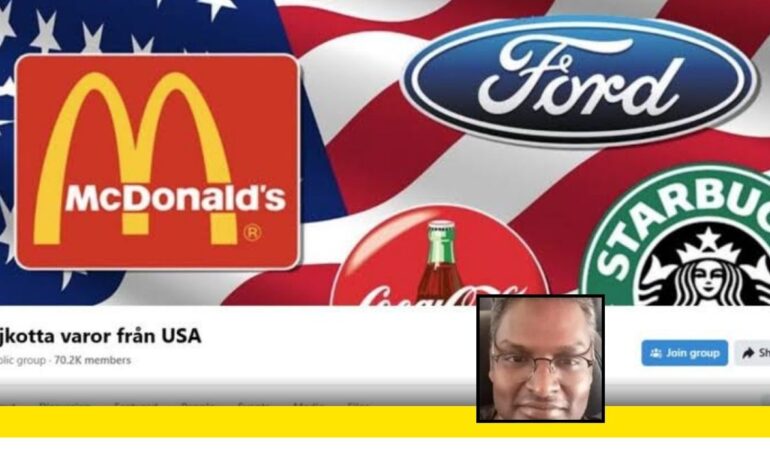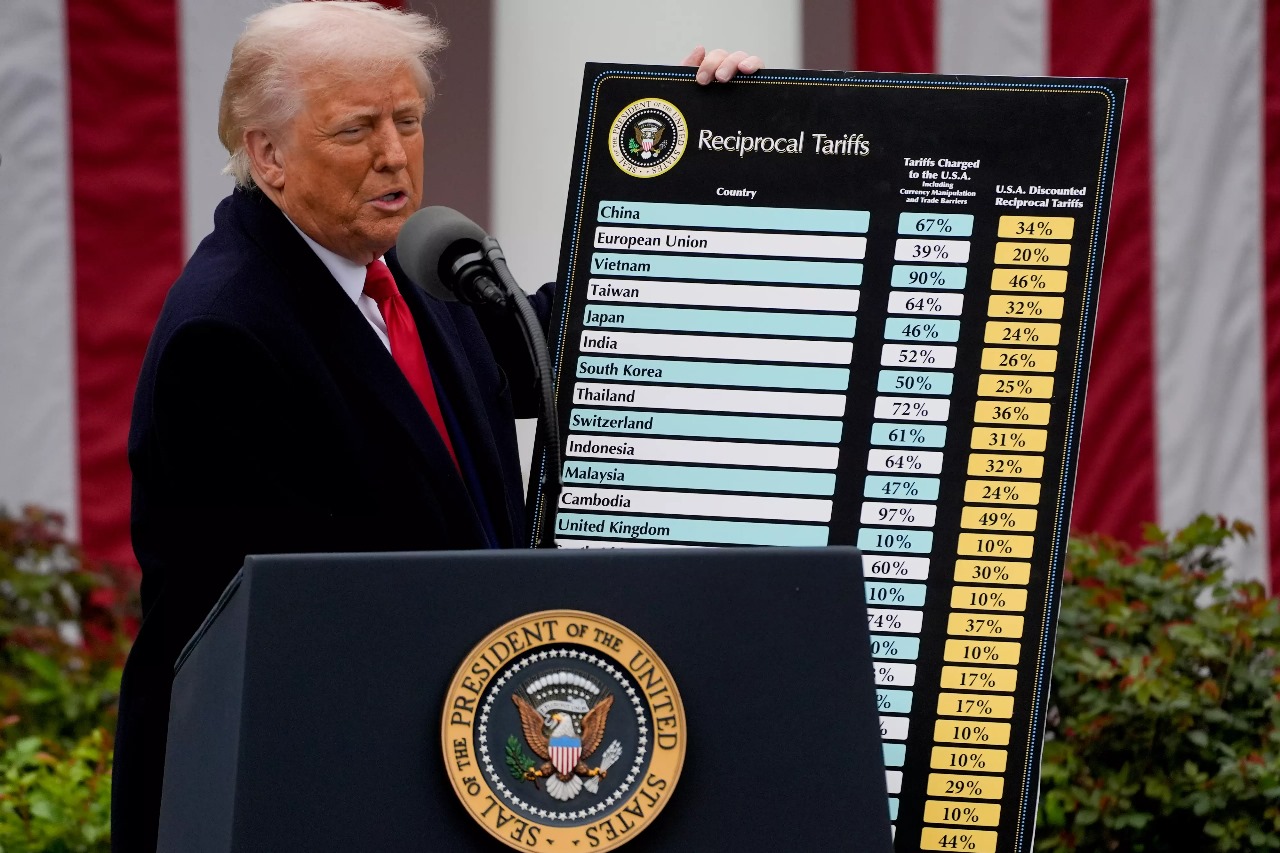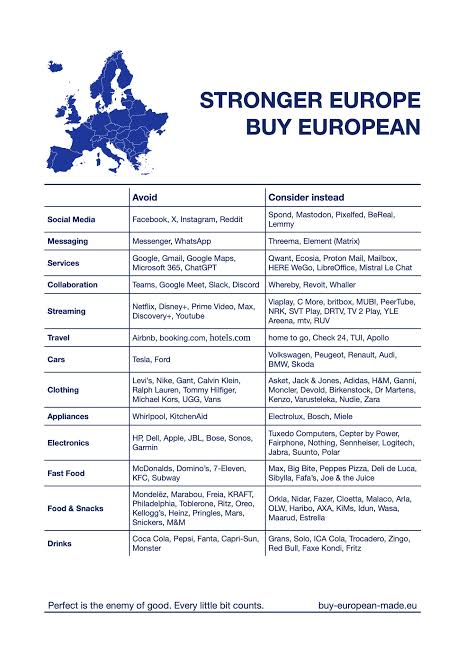Europe Rises in Boycott Against U.S Goods

A growing wave of consumer activism is sweeping across Europe, as citizens increasingly turn to social media to organize widespread boycotts of American-made products. The movement gained significant momentum in early 2025 following a new round of tariffs imposed by President Donald Trump, reigniting tensions between the U.S. and its traditional allies.

The boycott has found fertile ground in France, Germany, Denmark, and Sweden—alongside notable activity in Canada. Social platforms like Facebook and Reddit have become vital hubs for mobilizing collective action and encouraging consumers to shift away from U.S. brands.
Key Online Communities Fuelling the Movement
France: The Facebook group “BOYCOTT USA: Achetez Français et Européen!” (“Boycott USA: Buy French and European!”) has attracted over 30,000 members.
Sweden: “Bojkotta varor från USA” (“Boycott Goods from the USA”) boasts 80,000+ members.
Reddit: The community r/BuyFromEU has surged past 200,000 members, sharing alternatives to U.S. products—from electronics to household goods.
Broadcast Media: Several national TV reports have visited retailers to confirm the boycott’s real-world traction, interviewing consumers actively avoiding U.S.-made items.
Signs of Real-World Economic Impact
Though full economic data is still emerging, early signals point to a shift in consumer behaviour and pressure on select sectors:
Public Opinion Trends: Nearly 50% of Danish consumers report intentionally avoiding U.S. products.
In Sweden, 70% of respondents say they have either participated in or seriously considered a boycott.
In Germany, a recent poll showed over one-third of consumers are rejecting U.S. goods outright.
A French survey found 62% of participants expressing a willingness to join the boycott.
Sector Impacts: Tourism to the U.S. has reportedly dropped by double-digit percentages from several European countries.
Major U.S. brands like Tesla are said to be experiencing notable sales declines in European markets.
Retailer Adaptation: In Denmark, Salling Group, the country’s largest supermarket chain, has introduced special labeling to help shoppers identify European-made products. The company describes it as an informational measure, not a political stance.
Cultural and Political Backlash Intensifies
Beyond economics, the boycott reflects a wider cultural pushback. On platforms like X (formerly Twitter), Facebook, and YouTube, hashtags such as #BoycottUSA and #BuyEuropean are trending across multiple languages.
Tensions have also been amplified by a scandal involving Elon Musk, after a viral video allegedly showed him making a Nazi salute—a move that sparked outrage across European media and social channels. For many, this incident has added fuel to an already smoldering fire.

As one Danish activist wrote: “This isn’t just about tariffs—it’s about values.”
With European sentiment increasingly hardened, and no signs of de-escalation from the Trump administration, the boycott could evolve into one of the most significant transatlantic consumer movements in recent history.
This article was originally published in Punjab Today News and can be read here.
A similar movement had risen across Canada in March in the run-up to the general elections held recently. Read the article here.











